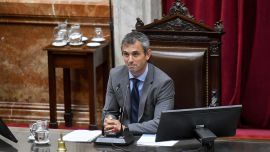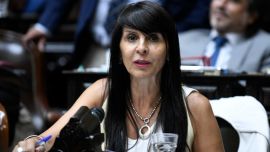The International Monetary Fund is set to discuss a review of the fees it charges its biggest borrowers after some nations raised concerns that costs are becoming unreasonable due to higher interest rates.
The IMF board, made up of 24 members representing the Washington-based crisis lender’s 190 countries and a management official, is set on Monday to weigh options to give nations a break on surcharges, according to people familiar with the plans, who asked not to be identified without permission to speak publicly. The fees apply to nations that borrow more than their allotted share or take longer to repay loans under IMF programmes.
The IMF declined to comment.
In April the lender said that the executive board would start looking into the surcharge issue this summer, which “may present options for possible changes” and will take into account implications for borrowers and the fund’s risk management. A change to the policy would require 70 percent of the board’s voting power to approve.
The meeting will address initial considerations for a review of the fees, according to one of the people, and no final decision is expected this week.
The Washington-based fund has collected the fees for years as a way to discourage its biggest borrowers from becoming too reliant on the crisis lender. While the fees have filled up the fund’s coffers, they’ve also added billions of dollars in extra costs for countries that are already hurting, according to data compiled by the Center for Economic and Policy Research.
Higher global interest rates, particularly from the US Federal Reserve and European Central Bank, mean that the total rate on some loans from the IMF is now higher than eight percent. That’s double the level before the Covid-19 pandemic. The burden is being carried mainly by a handful of countries including Argentina, Egypt and Ukraine topping US$6 billion.
The meeting comes two weeks before Brazil is set to host meetings of the Group of 20 finance ministers and central bankers in Rio de Janeiro. Brazil’s President Luiz Inácio Lula da Silva, as host of the forum this year, has promised to make the fees a top issue amid his calls to reform the international financial system.
The IMF has said the fees are a necessary part of its financial model, meant to discourage borrowing too much or taking too long to repay. Borrowers and their supporters say surcharges drain resources needed for essentials such as food and healthcare, and are increasingly punitive given faster inflation and higher interest rates.
The US, the IMF’s biggest shareholder, has signalled a willingness to reconsider the fees.
related news
by Jorgelina do Rosario & Eric Martin, Bloomberg






















Comments